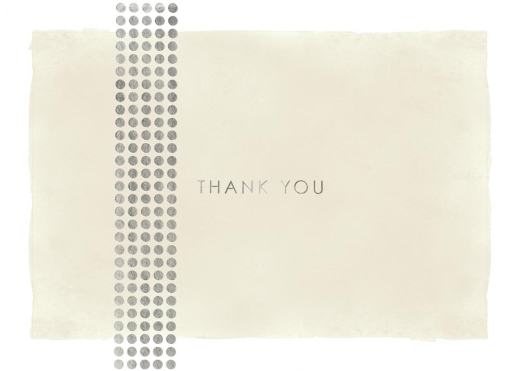You just finished interviewing with the company of your dreams. You took the time to do thorough research on the company and position you applied for and came prepared with a detailed list of questions to ask the hiring manager. While you probably spent weeks prepping for this day, don't forget that the people interviewing you took time out of their busy schedules to prep and meet with you, too. If you want to seal the deal (it's your dream job, of course you do) it is highly recommended that you draft a formal thank-you letter to send to the individuals with whom you met.
According to The Ladders, an online job-matching service, research shows that 75 percent of interviewers said receiving a thank-you letter from a candidate affects their decision-making process. This can be the deciding factor when choosing a candidate who is the best fit for the position.
It's crucial to send a thank-you letter within 24 hours of your interview while you are still fresh in everyone's mind. If done incorrectly (spelling errors, wrong names, bad timing) you are potentially hindering your candidacy and will likely end up with a rejection letter.
Here are four tips on how to properly write thank-you cards after an interview:
1. Thank you
To state the obvious, begin your letter by expressing your gratitude. Go with something simple like this, "Hi [interviewer's name], I wanted to thank you for taking the time to speak with me yesterday about X position with Y company. It was a pleasure meeting you, and I thoroughly enjoyed learning more about the role and the company in general."
2. Stand out
Interviewers receive hundreds of thank-you letters, so it's important to differentiate yourself from the other candidates. Be sure to reiterate your passion and determination to help the company grow. State that your qualifications will be a significant contribution to the business as well. The key here is to tailor each thank-you letter, which is why taking notes during the interview is recommended. If you share a passion with the interviewer or discussed the countries you both explored, add that to your note – it will help spark a memory of who you are. Don't get too personal, though, as this can be a huge turn off and cost you the job.
3. Keep it short
You know the employees are working in a fast-paced environment, so keep your letter short, as they won't have time to read three pages – keep it to one. There is no need to go in depth and remind them of your past job experiences. They have your resume on file to refer back to in case they need a refresher. Your goal should be to highlight the main points of the conversation and express your drive. If there's something you forgot to mention during your face-to-face time, now is the perfect opportunity to do so.
4. Proofread, proofread, proofread
Did we mention proofread? There is a high chance that your application and resume will automatically meet the trash can if your thank-you letter contains an error – whether it's a misspelled word, inaccurately placed punctuation mark or just overall poor grammar. This is especially important for the interviewer's name and job title. Now is not the time to rely on spell check, but rather that intelligent brain of yours. Read it twice, then pass it along to a friend, then your mom, then read it one more time. You really want this job, right? So the more eyes, the better! Although these details may seem minor, the flame on your torch will be put out if there is even the slightest error found.
A well-scripted thank-you letter will open many doors to the working world. It's an opportunity to connect with the company, build professional relationships with employees and keep your resume on the top of the pile.

